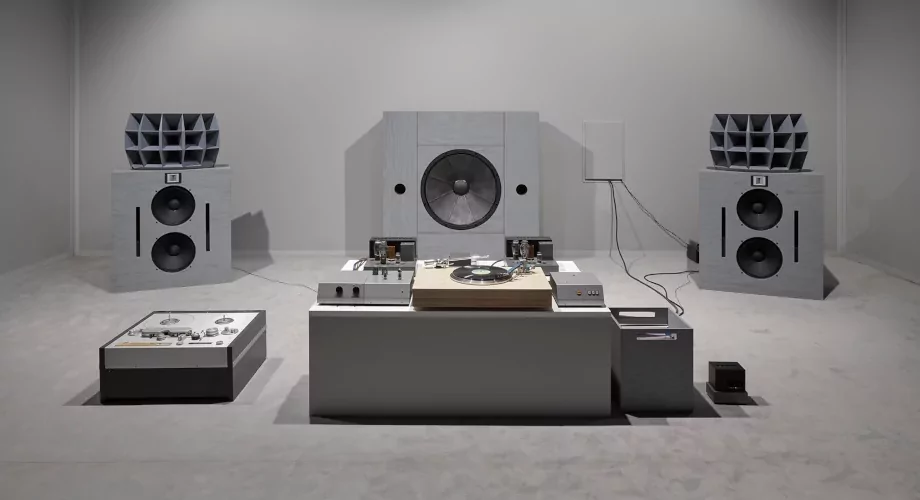Published on
January 18, 2024
Category
Features
Robert Haagsma speaks with the My Bloody Valentine frontman for his new book Passion For Vinyl – Tales From The Groove.
Every carefully curated record collection tells a story about its owner. Dutch author, music journalist, audiophile and vinyl collector Robert Haagsma’s new book, Passion For Vinyl – Tales From The Groove is keenly aware of this and pulls together figures from all corners of the music industry to uncover the impact of vinyl on their lives.
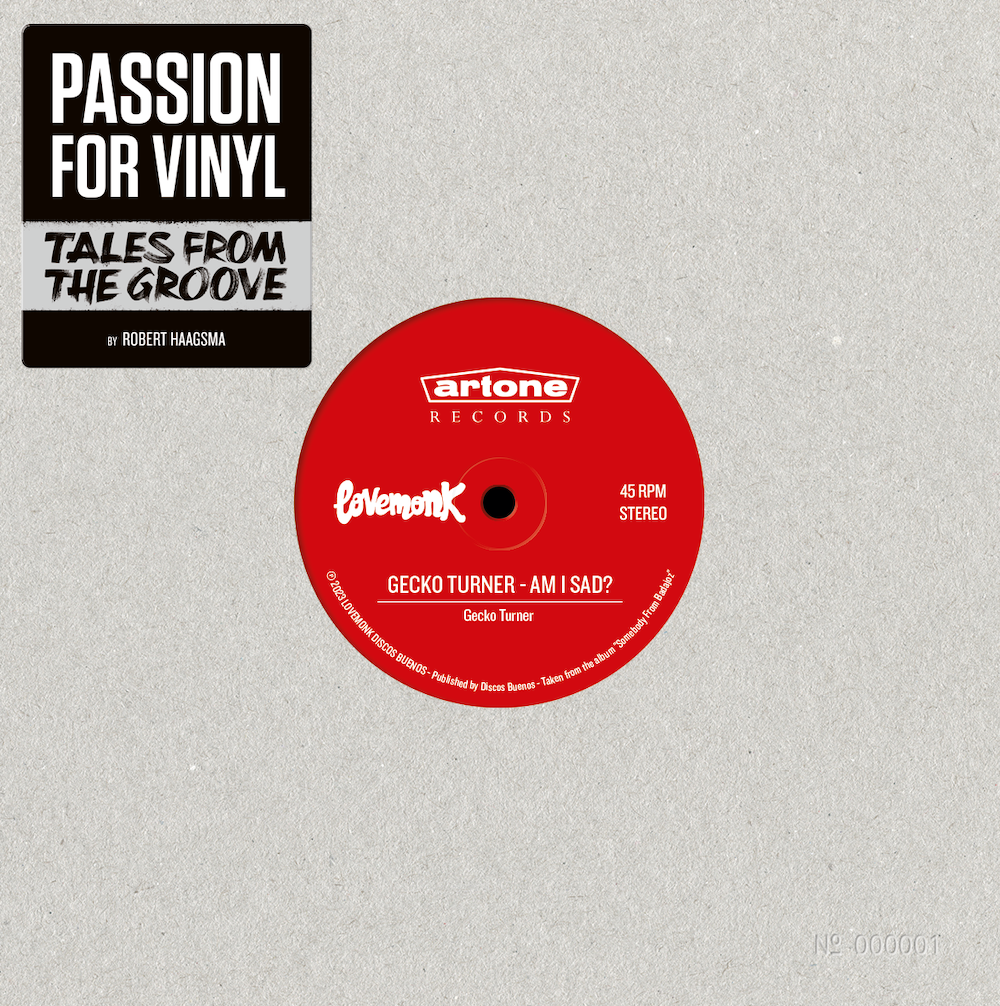
Featuring 30 interviews with folks including Coco Maria, Gilles Peterson and Colleen ‘Cosmo’ Murphy, Passion For Vinyl highlights the personal narratives built into every record collection.
In this interview excerpt from the Record Industry-published book, Haagsma speaks with My Bloody Valentine frontman Kevin Shields about his record collection, formative years and high-end audio.
In the 80s you lived for a while in Holland with your band My Bloody Valentine. How did that happen?
We performed at the Mazzo in Amsterdam at the time, which was still a rock club back then. The owner was a very friendly guy. He heard our tape and really liked us. He gave us an option: he would pay us. Or we could stay for a while in his second house in Gouda – which we ended up doing.
The great thing was that he had a very nice record collection. A lot of 60s and 70s stuff. Everything was good. He had all The Doors albums. I remember Rainbow Bridge by Jimi Hendrix. There were some bootlegs and quite a few 70s compilations. We listened to them all while smoking weed.
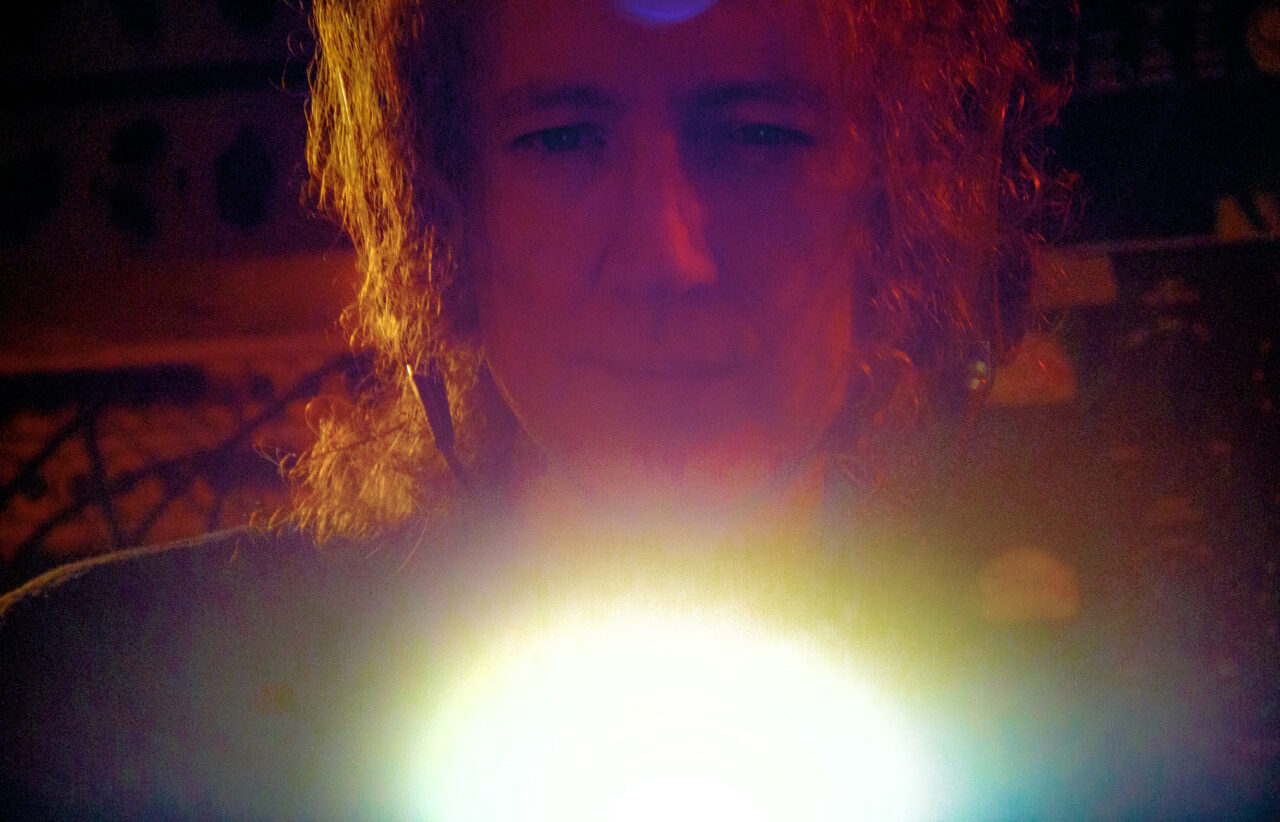
There must have been a few Dutch records among them. Do you remember any?
Yes, there were a few Herman Brood records. And I also recall albums by Claw Boys Claw. They were quite big in those days. I liked them. They made the same kind of music as we did. Garage-y stuff.
Did listening to this record collection leave any traces in the sound of My Bloody Valentine?
Actually it did. I was experimenting a lot in those days with feedback and those kinds of techniques. I think that listening to Jimi Hendrix definitely had an impact on that. His music inspired me to explore these aspects of my guitar playing even further. None of the members of My Bloody Valentine had older brothers or sisters. So we weren’t too familiar with older music. It was a stroke of luck to have access to all this great music.
What are your earliest musical memories?
What I remember from my childhood was that music was important. Socially important. I was the first born and my parents were still relatively young. During my first years they went to every single dance party that was happening in the neighborhood. They put me in a cot, took me with them and they had a wonderful time. So that’s how I grew up, literally surrounded by music. Rock-‘n’-roll, skiffle music. Anything that was mainstream in the early 60s. I think they listened to The Beatles as well, although they were probably already a bit too old for that. I also remember that they played The Hollies.
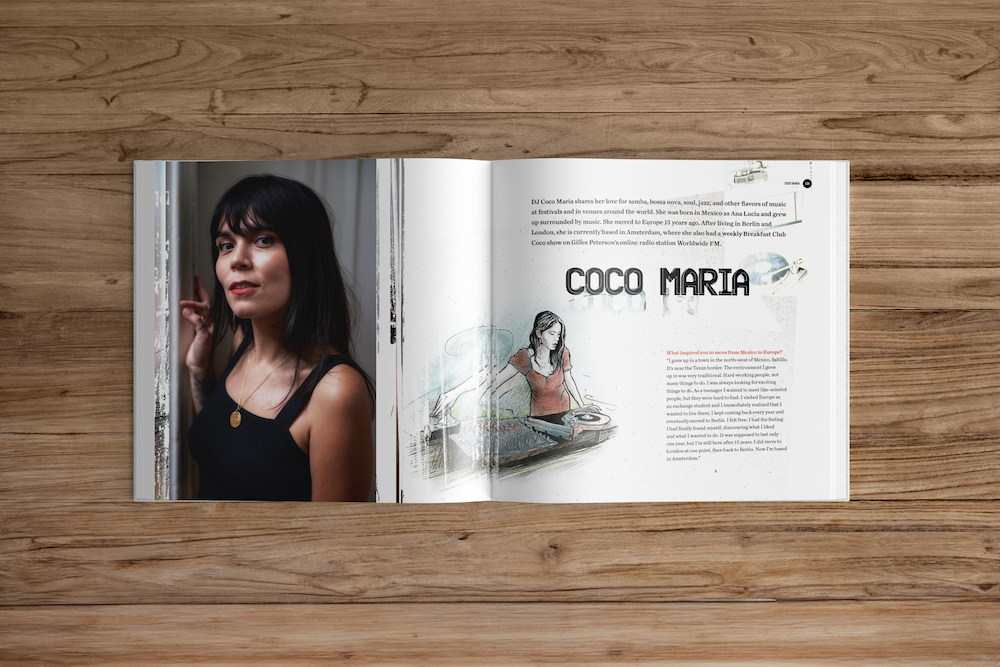
What other kinds of music were you exposed to in those early years?
I mainly got into music through television. In the late 60s and early 70s there were constant reruns of The Monkees TV series. The first real record that I owned myself was the Blue Album by The Beatles, a compilation of their best stuff from 1967 to 1970. I had it on cassette. A little later I also got the Red Album, with the earlier material. So I loved The Monkees, The Beatles, The Partridge Family. A little later I discovered glam rock.
With the little money I had I also bought these Top of the Pops albums, cheap comps with covers of the hits of the moment. Even as a child I remember them being terrible. One uncle was very much into The Beatles and ironically another uncle introduced me to The Rolling Stones. In the early 70s the movies Help! and A Hard Day’s Night were promoted again, so although the 60s were over and the band was gone, The Beatles were still all around. Over the years they’ve become my main influence as a music lover and as a musician. Especially their sense of melody. They are untouched in that respect.
And how did you find your way into music as the 70s progressed?
There was a middle phase where I wasn’t really into music. The mid-70s were not particularly good years for pop music. In 1977 I got excited again with all the new stuff that was coming out. Punk and later postpunk. Ramones was a huge band to me. I also loved The Cure. That’s also when I started buying albums again, everything on vinyl of course.
You’ve mentioned in other interviews Johnny Ramone as one of your major influences as a guitar player.
Yes, The Beatles and Ramones are my favorite bands of all time. When I learned to play he was definitely a huge influence. To me he’s not just a guitar player. Johnny Ramone is a generator of sound. He doesn’t even seem to play guitar. He creates a wall of sound playing just a few chords.
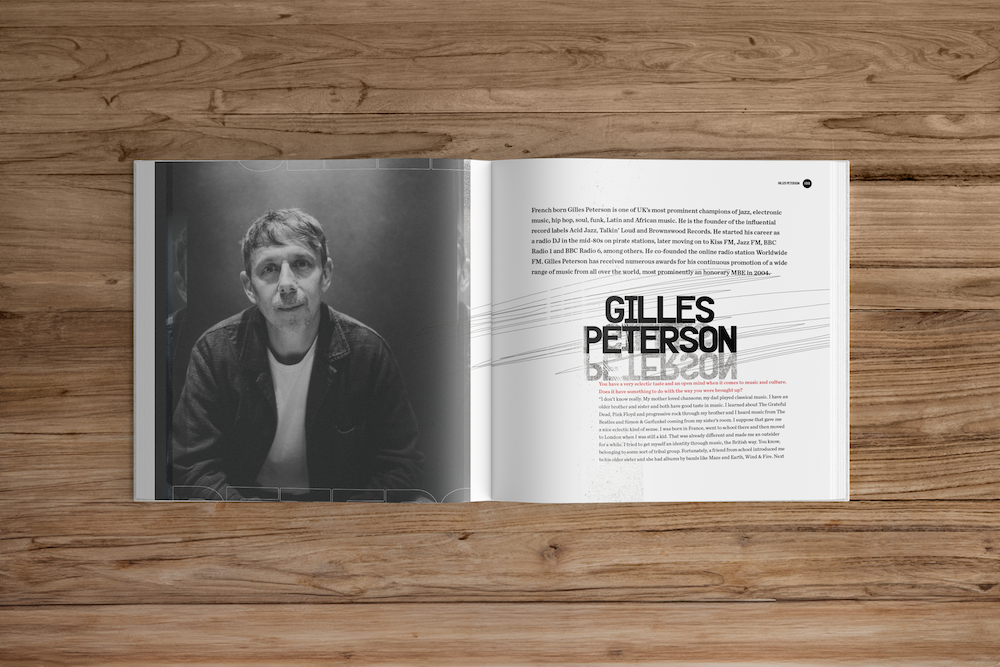
Were there particular albums that were important in those formative years?
The Beatles albums obviously. The Sex Pistols and the Ramones records. The early albums by The Cure and Buzzcocks. I liked loud, guitar-driven music, but I also loved simple melodies. Buzzcocks were perfect in that sense. Great songs. I was attracted to noise. I’d go and see Einstürzende Neubauten for example. And ironically it was a cover version they did of Lee Hazlewood’s song “Sand” that really put me on to the idea of merging extreme music with great melodies.
Were there record shops in your area?
My teenage years were in Dublin, I lived in America in my pre-teens. There was a downstairs record shop that was appropriately named Basement X. And then there was Freebird Records, that was specialized in alternative music, postpunk, and ska. A pretty good shop that also catered to the general public. There were some good shops, but it was hard to get good records. Dublin was pretty isolated in those days. You had to grab them when they came out. You may not see them again for a while.
In the 80s the CD was introduced. Were you an early adopter?
No, not at all. Most of the collectors and musicians I knew stuck with vinyl for a long time. Nobody I knew had a CD player in the 80s. I bought my first one in 1990. I’ve always had mixed feelings about the format. When we started to make records ourselves, it bothered me that we were making LPs for people with cheap cartridges, chipped needles, and other issues. A lot of regular stereo gear didn’t have a proper midrange. The CDs were better in that respect. Over the years I grew to love them, although they can be fatiguing when you listen to them for an extended period. And I never liked the little booklets.
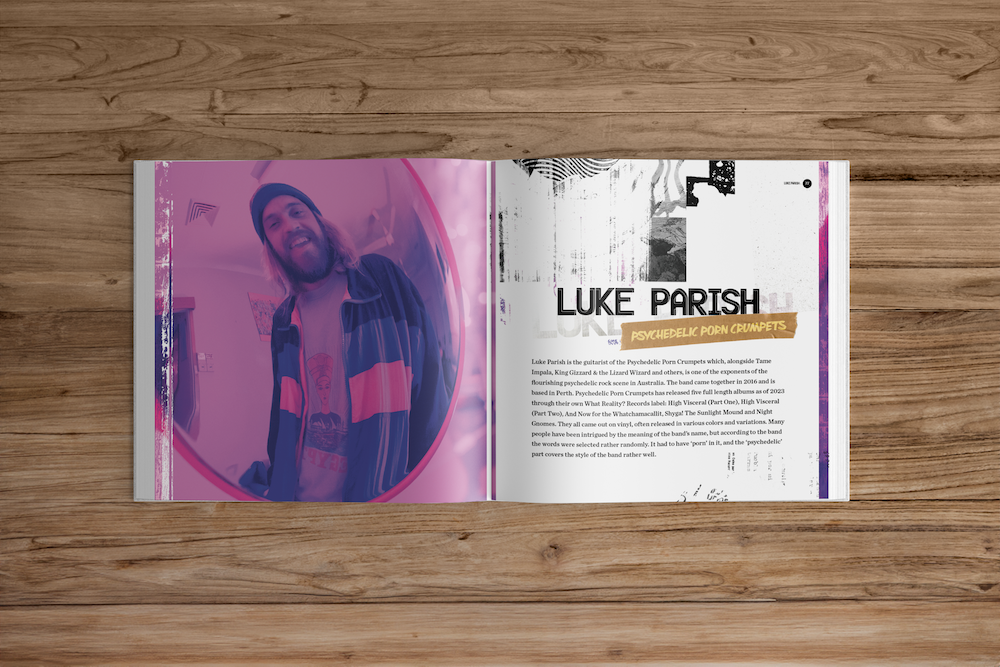
Did you have the same kind of reservations with studio equipment?
In a way. As a band we were early adopters of digital technology. In the early years of digital workstations we were apparently one of the first customers outside of the BBC to buy Sadie, nowadays used in most mastering places, to the extent where the people who sold it to us rang us to ask us if we were aware what we were buying, it was that early.
I’ve since then used digital gear quite a lot, but I mainly use analogue tape. Just like with CD there is a fatiguing characteristic to digital, at least to me. Over the years I’ve worked with a lot of engineers who’ve worked almost exclusively with digital technology for recording. It is their reference. Their brain is tuned into that sound. To me a tape is more inviting when it comes to experimenting with guitar sounds. The analogue format adds something to the sound. And making a vinyl record, recording, and mastering it all analogue, to me in this day and age, is a wonderful thing to do.
You also were very closely involved with the reissues of the three My Bloody Valentine albums. The general consensus was that they looked and sounded exemplary.
I’m happy with the result, although as a perfectionist there are always aspects that may have been better. It was done all analogue and that is money and time consuming. When I started I did a little survey and checked out various studios. It turned out that a very small percentage of albums is mixed and mastered analogue these days. They generally work with digital files they get sent. If you want to go all analogue, they really have to dust off the gear. A lot of knowledge has disappeared. Making a vinyl record the way people used to do hardly exists anymore. There are now more obstacles than in the past. I think we succeeded in making real good sounding albums, which are very close to the intentions we had when we created them.
With sound quality being so important, does that also mean you have a high-end stereo set?
In my studio I use one of the latest Technics turntables. It’s a workhorse and it has been fully modified to make it perform even better. It has a new power supply and arm. It has perfect speed. It’s my reference deck because it’s very accurate. I have 7 or 8 turntables at home, like Thorens and Linn. When I play records for pure pleasure I usually use my VPI Scout. I use McIntosh amplification and Bowers & Wilkins 804 speakers. And I use some sorts of room treatment. Good acoustics are very important.
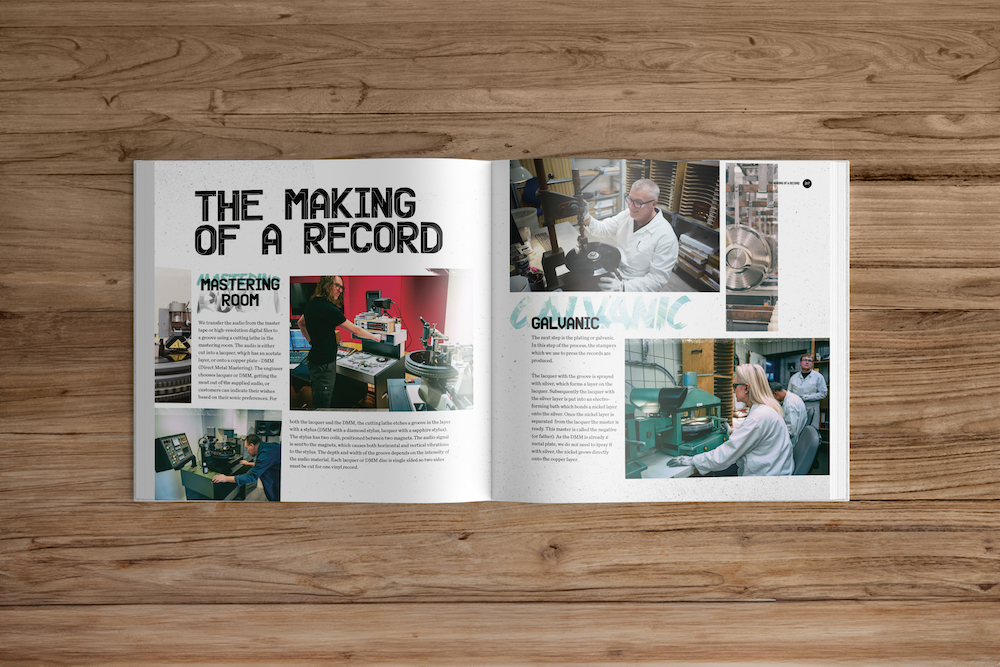
What can you tell me about your record collection?
I’ve got a lot of records from the 60s and 70s. Apart from that it’s an eclectic collection. I’ve got punk, folk, classic rock, and jazz. I love John Coltrane. And of course there is a lot of Beatles, Beach Boys. I often have multiple copies of favorite albums. The sound quality of various pressings can sound wildly different.
I understand that people especially in America pay top dollar for the ultimate pressings of certain albums. The best one that came out of the pressing plant. And being a Beatles fanatic I have several copies of the analogue mono box set. I bought three or four before they disappeared. They are super rare now. It’s an all-analogue set. It’s a very special artefact.
Do you still add new records to your collection?
Up till the COVID situation I traveled a lot and I would always go to record stores. I live two hours away from Dublin, so I don’t go there too often. And there is nothing around here where I live. I don’t buy a lot on eBay. The good versus bad experiences have been 50-50 so far. It’s hard to find good copies of records, even if you buy them in stores.
The vinyl may look good, but if it’s been played with a worn needle, there will be noise and distortion. I’m also into reel-to-reel tapes lately. I’ve done some comparisons between tape and the new, digitally sourced vinyl records by The Beatles. Magical Mystery Tour was one of the albums I used for the shootout. The tapes came out very well. Analogue still has an unmistakable quality. And talking about records, I recently bought a few old Beatles records in a local antique shop. Original mono pressings. They were really worn. Only a few tracks looked somewhat playable. I couldn’t leave them behind. It’s The Beatles after all.
Words by Robert Haagsma.
Passion For Vinyl – Tales From The Groove by Robert Haagsma is available to order now.
Read more: The Records That Made VF artist Es Devlin

